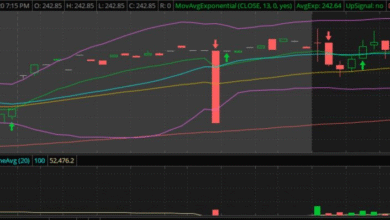Banking Oversight: Examining Pressure on Crypto Clients

Banking oversight plays a crucial role in shaping the financial landscape, especially as it pertains to the evolving dynamics of the cryptocurrency market. Recent reports reveal increasing concerns regarding federal pressure on banks to debank crypto clients, which raises significant questions about the integrity of regulatory practices in the financial sector. As lawmakers investigate these pressures on major banking institutions, the implications for crypto businesses and their safety become increasingly evident. With regulatory scrutiny mounting, understanding how policies like crypto banking regulation impact legitimate digital asset enterprises is vital for the industry’s future. This environment of uncertainty underscores the need for robust banking oversight that protects both consumers and innovative businesses amidst changing financial landscapes.
Financial regulation is undergoing a transformative phase, particularly within the realm of digital currencies and assets. Recent developments highlight the growing tension between lawmakers and financial institutions as they delve into the controversial practice of severing banking ties with recognized crypto ventures. This scrutiny not only encapsulates concerns regarding the safe conduct of crypto transactions but also raises alarm over the broader implications of potential political motivations influencing banking decisions. As authorities seek clarity on matters of compliance and risk management in crypto markets, the emerging dialogue stresses the importance of effective banking supervision. Understanding these dynamics is crucial for both policymakers and industry stakeholders aiming to navigate the complexities of modern financial systems.
Understanding the Impact of Federal Pressure on Banking Oversight
The recent examination of federal pressure on banks has revealed serious implications for how financial institutions interact with the cryptocurrency sector. Lawmakers, led by Committee Chair James Comer, are scrutinizing whether government agencies have unfairly influenced major banks to sever ties with legitimate crypto businesses. This investigation not only highlights the challenges faced by crypto firms under the evolving landscape of banking oversight but also raises questions about the long-term effects on innovation and competition within the financial sector.
Banks, under the jurisdiction of the Office of the Comptroller of the Currency (OCC), are critical players in the regulatory landscape. As they adapt to the changing regulations surrounding digital assets, the fear of punitive actions from federal regulators can stifle their willingness to engage with the crypto market. The ongoing inquiry into the OCC’s role in potentially coercing banks into debanking clients indicates a crucial juncture for federal oversight—balancing between ensuring consumer protection and fostering an environment conducive to fintech innovation.
Frequently Asked Questions
What is banking oversight in relation to crypto banking regulation?
Banking oversight refers to the regulatory framework that governs financial institutions, ensuring they comply with laws and standards. In the context of crypto banking regulation, it involves scrutinizing banks that handle cryptocurrency transactions and ensuring they operate safely while mitigating risks associated with digital assets.
How has federal pressure on banks affected their relationships with crypto clients?
Federal pressure on banks has led some institutions to sever ties with crypto clients, sparking concerns over unjust debanking. Lawmakers are investigating whether banks are under coercion to drop legitimate crypto businesses due to changing oversight rules.
What role does the OCC play in banking oversight concerning crypto businesses?
The Office of the Comptroller of the Currency (OCC) plays a crucial role in banking oversight by regulating national banks. Recent investigations are probing whether the OCC has improperly influenced banks to debank legitimate crypto businesses, raising questions about their engagement with digital assets.
What challenges do crypto businesses face in the current banking oversight environment?
Crypto businesses face challenges such as potential debanking by leading financial institutions, influenced by federal scrutiny and changing regulations. These challenges highlight the need for clear and supportive banking oversight that allows for safe engagement with digital asset practices.
How can businesses ensure safety when dealing with crypto and face banking oversight?
To ensure safety in the realm of crypto amidst banking oversight, businesses should comply with all relevant laws, employ robust risk management frameworks, and stay informed about regulatory developments. Understanding the requirements set forth by agencies like the OCC can also aid in maintaining a compliant operational stance.
What was the significance of Interpretive Letter 1179 issued by the OCC?
Interpretive Letter 1179, issued by the OCC, established a framework for federally chartered banks to engage with digital assets. Its subsequent revocation in March 2025 indicated a shift in banking oversight concerning crypto operations, raising concerns about how this impacts institutions’ willingness to serve the crypto sector.
What does the recent guidance from the OCC mean for banks and crypto-related activities?
The OCC’s recent guidance indicates that while banks no longer need explicit approval for crypto-related activities like custody services and participation in blockchain networks, they must still conduct these operations safely and soundly, highlighting the importance of ongoing risk management and legal compliance.
| Key Points | Details |
|---|---|
| Investigation of Federal Pressure | The House Committee is investigating allegations that major banks were pressured to drop crypto clients. |
| Impact of Political Scrutiny | Increasing scrutiny on federal regulators and banks regarding their treatment of crypto-related businesses. |
| Chair’s Announcement | Chair James Comer of the House Committee is requesting records from the OCC to examine potential coercion in debanking. |
| Importance of Interpretive Letter 1179 | This letter initially guided banks on how to engage with digital assets but was later rescinded. |
| Emphasis on Whistleblower Concerns | Concerns about large institutions not being addressed properly by the OCC are highlighted. |
| Impact of Occ’s New Guidance | OCC’s new guidance indicates that banks can operate crypto activities without explicit prior approval but must adhere to safety and compliance regulations. |
Summary
Banking oversight is under intense scrutiny as the House Committee investigates pressures on banks to sever ties with crypto clients. The ongoing inquiry delves into potential coercion by federal regulators, raising critical questions about the integrity of banking practices concerning the cryptocurrency sector. With the oversight landscape rapidly evolving, it’s essential for stakeholders to remain informed about regulatory changes and their implications on banking relationships with digital asset businesses.




